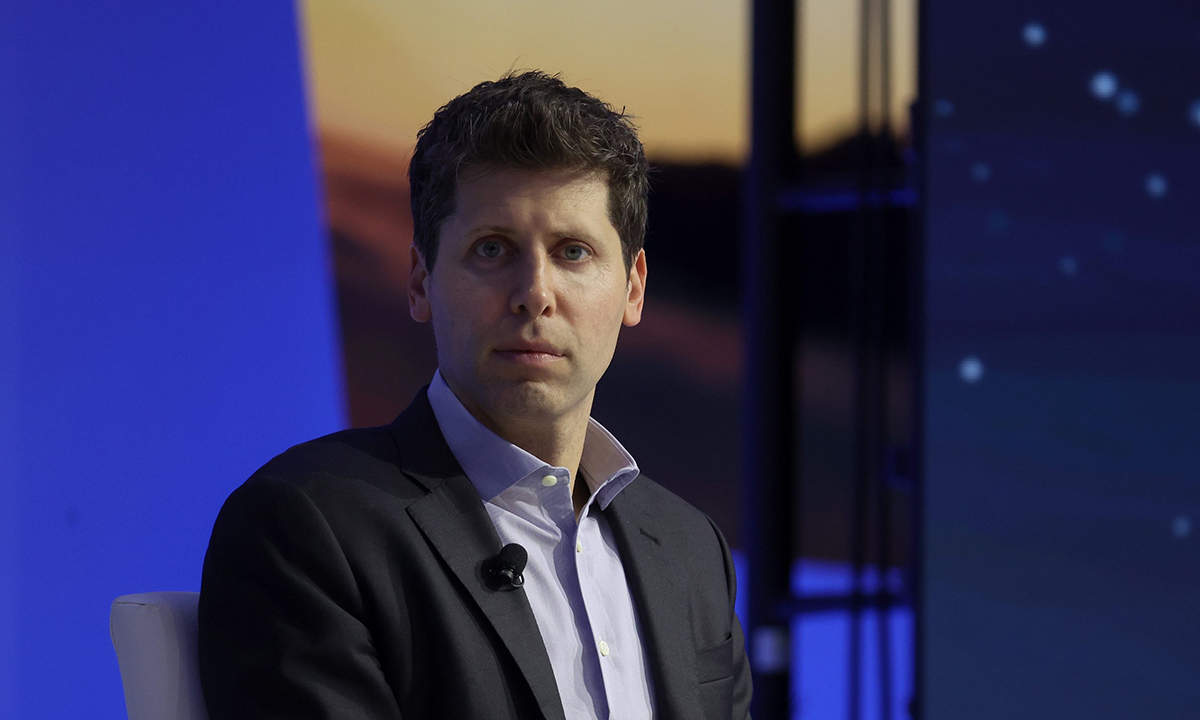
在人工智能聊天机器人ChatGPT上线几个月后,OpenAI的首席执行官山姆·奥特曼(Sam Altman)提交了一家新的风险投资基金的披露材料。
《财富》杂志通过《信息自由法案》(Freedom of Information Act)申请获得的公开文件和文档显示,该基金是他的风险投资公司Hydrazine Capital的第四只基金,于今年3月成立,在6月底之前的某个时候,从硅谷更瞩目的有限合伙人之一——密歇根大学((University of Michigan)的179亿美元捐赠基金那里得到了一张支票。该基金还直接投资了OpenAI和OpenAI的企业风险基金。这是密歇根大学向奥特曼的风险投资公司进行的第二笔投资。
这些文件之所以引人注目,有两大原因。首先,它们首次证实,奥特曼的个人风险投资公司除了他自己、兄弟和朋友的私人投资外,还有机构资本。其次,这些文件表明,最热门的人工智能公司之一的首席执行官一直在日常工作之余筹集资金。
“我们与山姆和Hydrazine IV长期保持着合作关系。Hydrazine IV是一只小型基金,密歇根大学是唯一的外部投资者,这也是我们现有投资策略的延伸。”密歇根大学捐赠基金投资高级常务董事丹·费德(Dan Feder)告诉《财富》杂志。目前尚不清楚该基金的具体规模或投资重点。费德、OpenAI、奥特曼和Hydrazine拒绝透露该基金的更多细节,也没有回应置评请求。
OpenAI发言人在发给《财富》的一份声明中表示,奥特曼“完全专注于OpenAI首席执行官的职责,只花了一小部分时间进行投资。关于偶有的投资行为,他做到对董事会保持透明,并遵守回避潜在利益冲突的程序。”
根据密歇根大学向《财富》杂志提供的一份该捐赠基金的所有风险投资基金投资清单,密歇根大学多年来向包括红杉资本(Sequoia Capital)、安德森·霍洛维茨基金(Andreessen Horowitz)、阿克塞尔合伙公司(Accel)、通用催化风险投资(General Catalyst)和Y Combinator管理的基金在内的基金共计投资了数十亿美元,并向Hydrazine基金投下了两笔有史以来最大的风险投资资金:向Hydrazine的第二只基金投了1.05亿美元,又向新成立的第四只基金投了7500万美元。记录显示,该捐赠基金还向奥特曼和他兄弟们几年前成立的投资工具Apollo Projects投资了1870万美元。在Hydrazine基金的所有披露文件中,奥特曼都被列为董事。
相比之下,根据捐赠基金的记录,该基金向规模近14亿美元的基金General Catalyst Group IX开出了6200万美元的支票,还向规模8.8亿美元的8VC Fund V注资5000万美元。此外,该捐赠基金还向规模15亿美元的基金Andreessen Horowitz Fund V注资1530万美元。对该基金的风险投资历史的回顾发现,该基金很少向个别风险投资基金开出超过5000万美元的支票,尽管它曾向Y Combinator、成为常青美元基金(Chengwei Evergreen Capital)和Eclipse Ventures等公司开过几次这样的支票。
上个月,随着奥特曼突然被OpenAI解雇,随后又于11月复职,他的个人风险投资成为了外界猜测的焦点。最初,OpenAI董事会声称,奥特曼对董事会“并非自始至终保持坦诚”。
今年夏天,奥特曼在接受The Information采访时谈到了他的个人投资,他说他注意到自己的投资可能产生的利益冲突。“一般来说,我认为解决利益冲突的方法就是避免投资与你所经营的公司直接相关的事情,并披露所有信息。”奥特曼当时表示。
在开始全职运营OpenAI之前,奥特曼曾担任硅谷孵化器Y Combinator的总裁,做过很长时间的投资人。2012年,他与自己的兄弟、莱迪思(Lattice)的联合创始人兼首席执行官杰克·奥特曼(Jack Altman)共同创立了Hydrazine Capital,不过目前尚不清楚杰克·奥特曼是否仍是投资人。根据领英(LinkedIn)的信息,合伙人莱恩·科恩(Ryan Cohen)也是Hydrazine和Apollo Projects的投资人。但科恩没有回应置评请求。(财富中文网)
译者:中慧言-王芳
在人工智能聊天机器人ChatGPT上线几个月后,OpenAI的首席执行官山姆·奥特曼(Sam Altman)提交了一家新的风险投资基金的披露材料。
《财富》杂志通过《信息自由法案》(Freedom of Information Act)申请获得的公开文件和文档显示,该基金是他的风险投资公司Hydrazine Capital的第四只基金,于今年3月成立,在6月底之前的某个时候,从硅谷更瞩目的有限合伙人之一——密歇根大学((University of Michigan)的179亿美元捐赠基金那里得到了一张支票。该基金还直接投资了OpenAI和OpenAI的企业风险基金。这是密歇根大学向奥特曼的风险投资公司进行的第二笔投资。
这些文件之所以引人注目,有两大原因。首先,它们首次证实,奥特曼的个人风险投资公司除了他自己、兄弟和朋友的私人投资外,还有机构资本。其次,这些文件表明,最热门的人工智能公司之一的首席执行官一直在日常工作之余筹集资金。
“我们与山姆和Hydrazine IV长期保持着合作关系。Hydrazine IV是一只小型基金,密歇根大学是唯一的外部投资者,这也是我们现有投资策略的延伸。”密歇根大学捐赠基金投资高级常务董事丹·费德(Dan Feder)告诉《财富》杂志。目前尚不清楚该基金的具体规模或投资重点。费德、OpenAI、奥特曼和Hydrazine拒绝透露该基金的更多细节,也没有回应置评请求。
OpenAI发言人在发给《财富》的一份声明中表示,奥特曼“完全专注于OpenAI首席执行官的职责,只花了一小部分时间进行投资。关于偶有的投资行为,他做到对董事会保持透明,并遵守回避潜在利益冲突的程序。”
根据密歇根大学向《财富》杂志提供的一份该捐赠基金的所有风险投资基金投资清单,密歇根大学多年来向包括红杉资本(Sequoia Capital)、安德森·霍洛维茨基金(Andreessen Horowitz)、阿克塞尔合伙公司(Accel)、通用催化风险投资(General Catalyst)和Y Combinator管理的基金在内的基金共计投资了数十亿美元,并向Hydrazine基金投下了两笔有史以来最大的风险投资资金:向Hydrazine的第二只基金投了1.05亿美元,又向新成立的第四只基金投了7500万美元。记录显示,该捐赠基金还向奥特曼和他兄弟们几年前成立的投资工具Apollo Projects投资了1870万美元。在Hydrazine基金的所有披露文件中,奥特曼都被列为董事。
相比之下,根据捐赠基金的记录,该基金向规模近14亿美元的基金General Catalyst Group IX开出了6200万美元的支票,还向规模8.8亿美元的8VC Fund V注资5000万美元。此外,该捐赠基金还向规模15亿美元的基金Andreessen Horowitz Fund V注资1530万美元。对该基金的风险投资历史的回顾发现,该基金很少向个别风险投资基金开出超过5000万美元的支票,尽管它曾向Y Combinator、成为常青美元基金(Chengwei Evergreen Capital)和Eclipse Ventures等公司开过几次这样的支票。
上个月,随着奥特曼突然被OpenAI解雇,随后又于11月复职,他的个人风险投资成为了外界猜测的焦点。最初,OpenAI董事会声称,奥特曼对董事会“并非自始至终保持坦诚”。
今年夏天,奥特曼在接受The Information采访时谈到了他的个人投资,他说他注意到自己的投资可能产生的利益冲突。“一般来说,我认为解决利益冲突的方法就是避免投资与你所经营的公司直接相关的事情,并披露所有信息。”奥特曼当时表示。
在开始全职运营OpenAI之前,奥特曼曾担任硅谷孵化器Y Combinator的总裁,做过很长时间的投资人。2012年,他与自己的兄弟、莱迪思(Lattice)的联合创始人兼首席执行官杰克·奥特曼(Jack Altman)共同创立了Hydrazine Capital,不过目前尚不清楚杰克·奥特曼是否仍是投资人。根据领英(LinkedIn)的信息,合伙人莱恩·科恩(Ryan Cohen)也是Hydrazine和Apollo Projects的投资人。但科恩没有回应置评请求。(财富中文网)
译者:中慧言-王芳
Just a few months after the artificial-intelligence-powered chatbot ChatGPT went live, the CEO of OpenAI, Sam Altman, filed disclosure materials for a new venture capital fund.
That fund, his venture firm Hydrazine Capital’s fourth fund, was launched in March, and sometime before the end of June got a check from one of Silicon Valley’s more noteworthy limited partners, the University of Michigan’s $17.9 billion endowment, which has also invested directly in OpenAI and in OpenAI’s corporate venture fund, according to public filings and documents obtained by Fortune via a Freedom of Information Act request. That check is the second investment the University of Michigan has made into Altman’s venture capital firm.
The documents are notable for two reasons. First, they offer the first confirmation that Altman’s personal venture firm is investing institutional capital in addition to his own or that of his brothers and friends. Second, they go to show that the CEO of one of the hottest AI companies around has been fundraising outside his day job.
“We have a longstanding relationship with Sam and Hydrazine IV. Hydrazine IV is a small fund in which the University of Michigan is the only outside investor, and this is an extension of our ongoing investment strategies,” Dan Feder, senior managing director of investments at the University of Michigan’s endowment, told Fortune. It’s unclear the fund’s exact size or focus. Feder, OpenAI, Altman, and Hydrazine declined to share more details of the fund or didn’t respond to requests for comment.
In a statement to Fortune, an OpenAI spokeswoman said that Altman “is fully focused on his role as CEO of OpenAI and spends only a small fraction of his time investing. He maintains transparency with the board about his occasional investments and adheres to a process for managing potential conflicts of interest.”
The University of Michigan, which over the years has collectively invested billions into funds including those managed by Sequoia Capital, Andreessen Horowitz, Accel, General Catalyst, and Y Combinator, has written two of its largest-ever venture capital fund checks into Hydrazine funds: a $105 million check into Hydrazine’s second fund and, most recently, the $75 million into Hydrazine’s fourth fund, according to a list of all the endowment’s venture capital fund investments that was provided to Fortune. The endowment has also invested $18.7 million in an investment vehicle called Apollo Projects that Altman and his brothers set up a few years ago, records show. Altman is listed as director on all of the Hydrazine funds’ disclosure documents.
Comparatively, the endowment has written a $62 million check into General Catalyst Group IX, a nearly $1.4 billion fund, according to endowment records; a $50 million check into 8VC Fund V, a $880 million fund; and a $15.3 million check into Andreessen Horowitz Fund V, a $1.5 billion fund. A review of the endowment’s venture capital investment history found that the endowment rarely writes individual checks over $50 million to individual venture capital funds, although it has done so a handful of times to firms including Y Combinator, Chengwei Evergreen Capital, and Eclipse Ventures.
Altman’s individual venture investments surfaced as an item of speculation last month amid Altman’s sudden termination, then later reinstatement, at OpenAI in November. Initially, OpenAI’s board claimed that Altman “was not consistently candid” with the board.
Altman this summer addressed his personal investing in an interview with The Information, saying he is mindful of conflicts of interest that may arise from his investments. “Generally, I think the approach to conflict of interest is just avoid things that are directly an issue with the company you’re running and disclose everything,” Altman said at the time.
Altman, a former president of Silicon Valley incubator Y Combinator before he started running OpenAI full-time, has been an investor for a long time. He set up Hydrazine Capital in 2012 with his brother and the cofounder and CEO of Lattice, Jack Altman, though it’s unclear whether Jack Altman is still an investor. Partner Ryan Cohen is also an investor at Hydrazine and Apollo Projects, according to LinkedIn. He did not respond to a request for comment.






